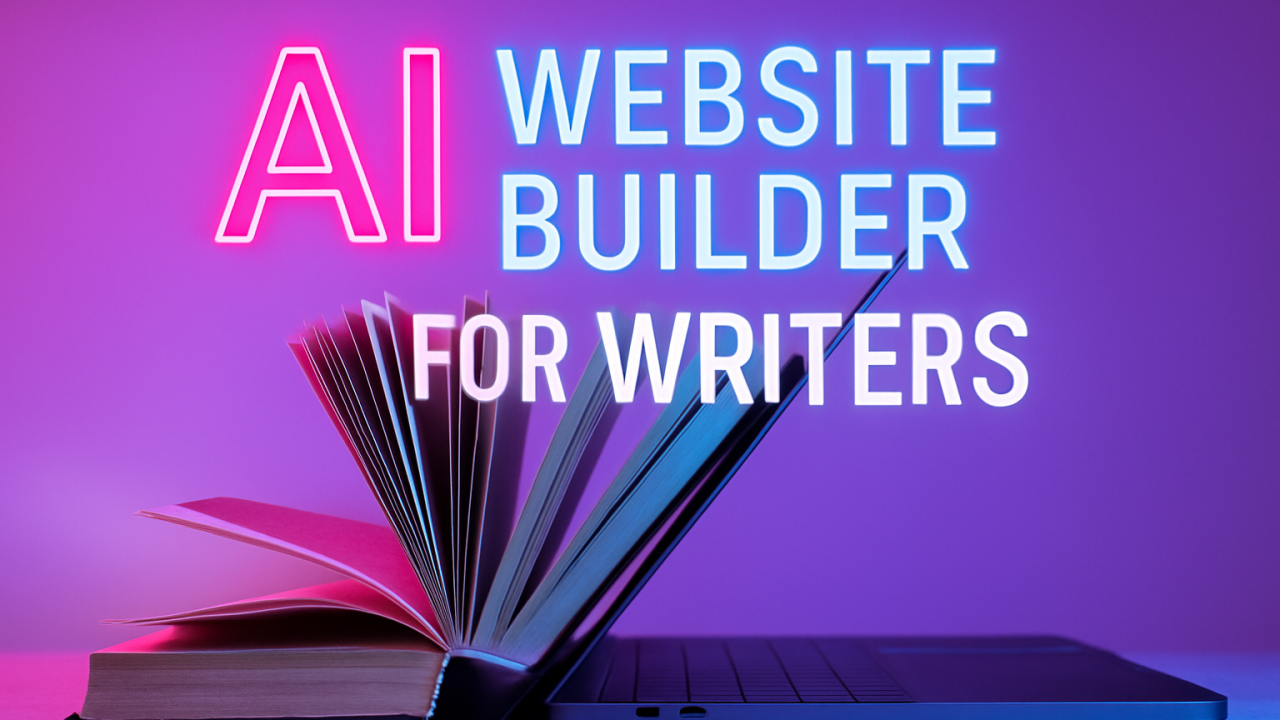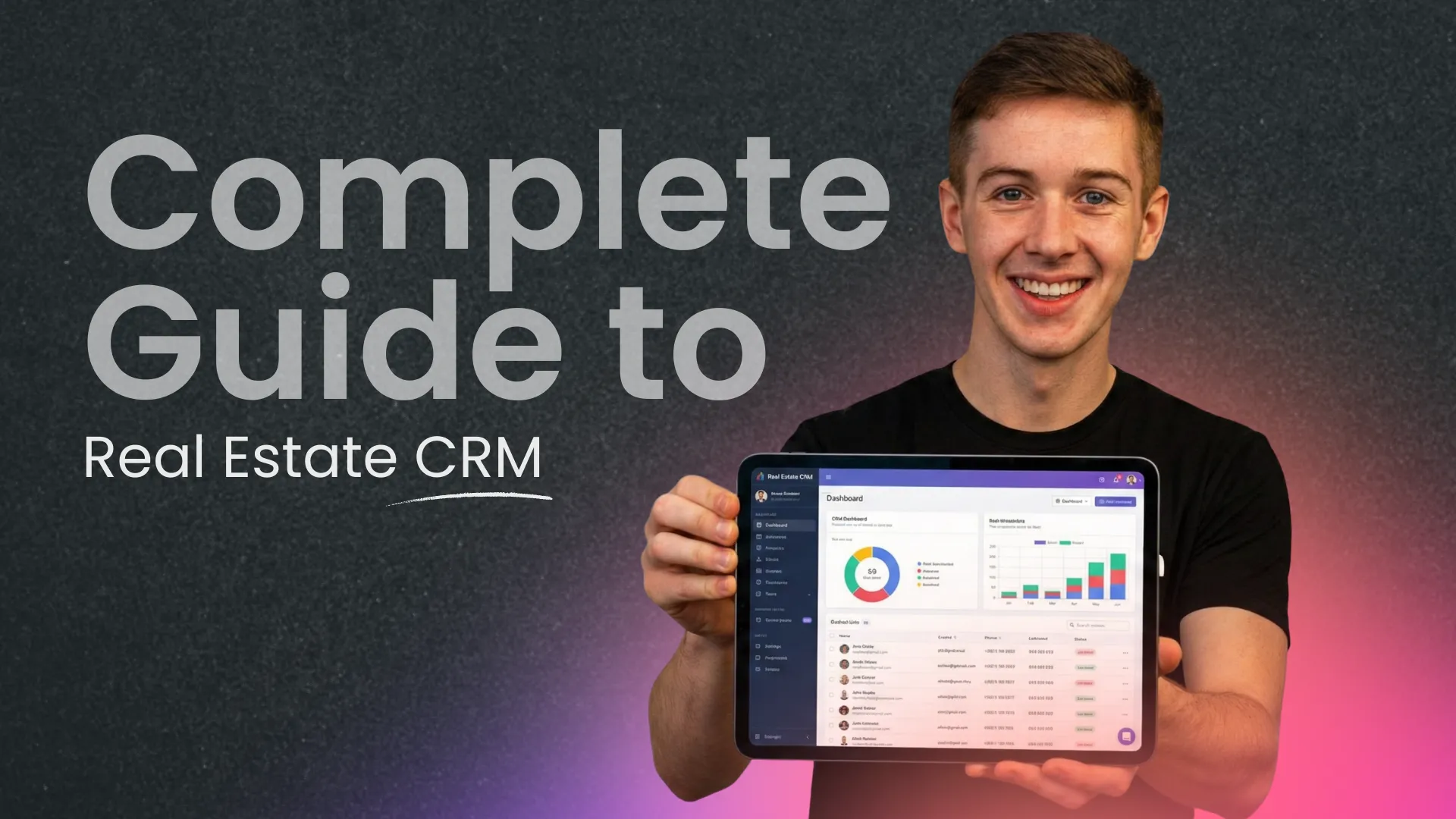
AI Website Builder for Writers
Writers often face the challenge of building a professional online presence without extensive technical skills. AI website builders provide a practical solution by allowing writers to create polished, customized websites quickly and without coding. These tools use intelligent automation to design, build, and launch a website tailored to a writer’s needs, saving time and simplifying the process.
Many AI website builders include features designed specifically for writers. From portfolio showcases and blog integration to marketing tools and ecommerce capabilities, these platforms help authors promote and sell their work efficiently. Writers can focus on their craft while the AI handles the technical details.
Launch Your App Today
Ready to launch? Skip the tech stress. Describe, Build, Launch in three simple steps.
BuildThe rise of AI-driven options means choices vary greatly in ease of use, customization, and pricing. Knowing which builder best fits a writer’s goals is key to creating an effective site that supports their career growth.
What Is an AI Website Builder for Writers?
An AI website builder for writers automates the process of creating a professional online presence without needing coding skills. It generates a personalized site structure based on the writer’s input and assists with content and design choices tailored to their needs.
This technology streamlines website creation by offering tools that are efficient, easy to use, and focused on showcasing written work effectively.
Defining AI Website Builders
AI website builders use artificial intelligence to design and build websites based on user prompts. Writers can describe their ideas or goals, and the AI generates a customized blueprint that includes layout, navigation, and content structure.
These platforms require zero coding knowledge, making them accessible to writers who excel in storytelling but lack technical skills. The AI adapts to different writing genres like novels, blogs, or portfolios, ensuring the site suits the writer’s style.
The result is a fast, automated setup that reduces the time and effort needed to establish a writer’s online presence.
Key Features for Writers
AI website builders for writers typically include the following key features:
- Automated Content Suggestions: Helps populate the website with relevant text such as author bios, book summaries, or blog excerpts.
- Customizable Templates: Offers writer-focused themes that highlight text and readability.
- SEO and Marketing Tools: Optimizes visibility for potential readers or clients.
- Portfolio Integration: Showcases published works in an organized manner.
- Easy Updates: Allows writers to keep pages current without complex edits.
These features focus on making the site attractive and functional while supporting writers’ primary goal: presenting written content clearly.
How AI Simplifies the Writing Process
AI simplifies website creation by translating a writer’s ideas into a fully structured website. When a writer describes their desired site’s purpose, the AI generates a complete layout, including homepage, portfolio, and contact sections.
This process removes technical barriers, enabling writers to focus on content rather than design or coding. AI tools can also assist in drafting site copy, headlines, and calls-to-action, helping writers create compelling messages quickly.
By automating routine tasks, writers save time and launch their sites faster, dedicating more energy to writing and audience engagement.
Core Benefits of Using AI Website Builders as a Writer
AI website builders offer writers quick solutions to create a functional and attractive web presence. They combine convenience, professional quality, and technological scalability to support writers from first draft to publishing and beyond.
Speed and Ease of Website Creation
AI website builders significantly reduce the time required to launch a website. Writers often face time constraints, making tools that automate design and content layout highly valuable. These platforms typically offer customizable templates tailored for author portfolios and blogs, requiring minimal technical skill.
Adding or editing pages is streamlined with AI suggestions for structure and content. Writers benefit from simple drag-and-drop interfaces aligned with AI-driven optimization. This eliminates the need to learn coding, speeding up setup and ongoing updates.
Professional-Grade Quality and Security
AI builders help writers achieve professional results comparable to custom designs by experts. They provide built-in security features that comply with major standards such as GDPR and SOC2, protecting user data and website integrity.
Most platforms include routine security checks and SSL certification to ensure safe browsing and confidentiality. They also integrate SEO tools, helping written content reach broader audiences without requiring manual optimization efforts.
Scalable Infrastructure
AI website builders are designed to scale effortlessly as a writer’s needs grow. They often deploy websites on leading cloud services such as AWS, Google Cloud Platform, or Vercel. This supports high traffic volumes and fast load times without compromising performance.
This infrastructure flexibility allows writers to expand their sites with multimedia, e-commerce, or membership features. The hosting platforms provide redundancy and security protocols to maintain uptime and data safety. This ensures a stable, long-term online presence.
Step-by-Step: How AI Website Builders Work for Writers
AI website builders streamline the website creation process by turning writer ideas into functional sites quickly. They translate basic inputs into custom layouts, generate necessary pages, and publish the site with minimal manual work.
Describing Your Idea in Plain English
The process begins when the writer inputs their website purpose and style preferences using simple language. They might specify genres, target readers, or features like a blog, portfolio, or contact form.
This plain English description helps the AI understand what kind of website is needed without technical jargon. The system then interprets keywords and descriptions to tailor the structure and content suggestions to fit the writer’s goals and audience.
By focusing on clear language, writers avoid complex setup steps, allowing the AI to generate a site framework aligned with their vision.
Automated Blueprint and Architecture
Once the idea is described, the AI generates an automated blueprint of the website. This blueprint includes the site layout, navigation, and essential pages. The architecture reflects best practices for writer sites, incorporating sections for showcasing work, biography, and reader engagement.
The AI selects suitable design elements and organizes content areas for clarity and usability. In many cases, an expert backup system reviews or fine-tunes the blueprint to ensure professionalism without needing manual coding or design skills.
This step saves time and provides writers with a ready-to-edit site structure tailored to their style and content needs.
One-Click Publishing
After previewing the AI-generated website, the writer can publish it directly with one click. This feature automates all technical steps like domain setup, hosting, and optimization.
One-click publishing ensures the site is live and accessible without delays or technical barriers. Some platforms also offer ongoing AI-powered tools such as SEO suggestions or content updates post-launch.
This final step empowers writers to quickly establish an online presence, focusing on their content while the AI handles deployment and maintenance logistics.
Imagine.bo: AI Website Builder for Writers
Imagine.bo offers a specialized AI website builder designed to meet the unique needs of writers. It combines intuitive design tools with AI-driven content assistance, helping authors create professional websites without coding. The platform emphasizes ease of use and expert guidance throughout the building process.
Unique Features of imagine.bo
Imagine.bo integrates AI technology tailored specifically for writers. It helps users draft bio sections, book summaries, and blog posts automatically. Writers can customize layouts that highlight their portfolios, published works, and social media links.
The tool supports dynamic content suggestions based on genre and writing style. It also includes SEO optimization features targeted at literary keywords. Writers benefit from templates built for author branding, making it easier to maintain a consistent online presence.
Unique to imagine.bo is its focus on privacy. During its private beta phase, user data is tightly secured. The platform encourages early adopters to join a waitlist for exclusive access, ensuring the development team can offer a focused, controlled rollout.
Onboarding and Getting Started
Joining imagine.bo begins with a simple sign-up process. Interested writers can join a waitlist for the private beta, granting early access to the platform’s features. This phased introduction allows a smoother, more personalized onboarding.
After gaining access, users find clear, step-by-step prompts guiding them through website creation. AI tools assist in content generation, layout selection, and publishing. Writers can preview changes instantly and adjust elements without technical knowledge.
The system is designed to minimize setup time. Most users can complete a professional-looking site within a few hours, benefiting from presets optimized for literary audiences. Supportive tutorials and FAQs are available to ensure a smooth start for novices.
Expert Support and Backup
Imagine.bo relies on a team of senior engineers and writing experts to provide ongoing support. Users receive expert guidance through live chat and scheduled consultations. This personalized help addresses both technical challenges and content-related questions.
The platform maintains regular backups, preventing data loss during edits or updates. Writers can restore previous versions of their website if needed, ensuring content safety at all times.
Expert support extends beyond troubleshooting. The team offers advice on website growth, SEO strategy, and content improvement. This ensures writers not only build but also maintain an effective online presence aligned with their goals.
Who Should Use an AI Website Builder?
AI website builders suit users who need quick, affordable, and easily customizable websites without extensive coding knowledge. They help simplify design, content creation, and SEO setup, saving time while maintaining professional results.
Writers and Authors
Writers and authors benefit from AI website builders by creating personal portfolios, blogs, or book promotion sites with minimal effort. These tools allow users to generate clean, readable layouts that highlight their work and provide easy navigation for visitors.
Many platforms offer built-in SEO optimization and content suggestions, which help improve visibility without needing advanced marketing skills. Writers can customize templates to reflect their personal brand while spending less time on technical tasks.
AI builders also support multimedia integration like audio readings or video interviews. This enhances engagement without complex development work, allowing authors to focus on content creation.
Agencies and Freelancers
Agencies and freelancers managing multiple client projects find AI website builders efficient for rapid site deployment. They provide reusable templates and automation features that reduce turnaround time and increase project capacity.
Customizability is vital in this context, especially drag-and-drop editors and code access for tailored adjustments. This flexibility enables meeting diverse client requirements while maintaining quality.
AI-generated content aides, including copywriting prompts and image suggestions, help freelancers deliver professional sites with less manual input. Moreover, integrated SEO tools simplify client site optimization across projects.
Founders and Solo Makers
Founders and solo makers need cost-effective, fast websites that can evolve alongside their business ideas. AI builders provide easy onboarding, allowing users with limited technical skills to launch functional sites quickly.
Such builders often include starter eCommerce features, contact forms, and analytics integration, essential for MVPs and early-stage ventures. They also enable iterative changes without requiring developer support, supporting agile growth.
Pricing plans starting at low monthly rates appeal to founders watching budgets. User-friendly interfaces reduce reliance on external help, enabling solo makers to focus on product development and customer acquisition.
Comparing AI Website Builders: Pricing and Plans
AI website builders often begin with a free or trial phase, allowing users to explore features without immediate costs. After this period, paid plans vary widely, typically scaling by user count and additional tools, which is important for writers managing budget and functionality preferences.
Free Beta Access
Many AI website builders are currently offering free beta access, valid through August 2025. This trial period provides full or near-full functionality without financial commitment, enabling writers to evaluate features like content generation, templates, and customization.
During beta, users can build and launch websites with no upfront cost. This phase is designed to gather user feedback and improve systems. Access is usually limited by time or site quantity but remains sufficient for testing the platform’s core capabilities.
Free beta access benefits writers by reducing risks, allowing them to focus on content rather than initial expenses. However, support might be basic, and some advanced tools could be restricted until the official launch.
Post-Beta Pricing Details
Once the beta period ends, most AI builders transition to paid plans starting around $19 per user per month. Pricing generally scales based on features such as the number of AI-generated pages, storage, SEO tools, and integrations.
Plans often include multiple tiers. Lower tiers offer essentials like basic AI content assistance and template access. Higher tiers unlock priority support, advanced AI design options, and e-commerce capabilities, beneficial for writers selling products or services.
Some providers offer discounts for annual subscriptions or additional seats, making them more cost-effective for teams or frequent users. Writers should review plan specifics closely, focusing on limits for AI usage and customization to match their needs and budget.
Security, Analytics, and Compliance
An AI website builder for writers must address site security, data compliance, and provide clear insights through analytics. These elements help protect content, comply with regulations, and track audience behavior to support growth.
Integrated Security Standards
Many AI website builders include security protocols aligned with industry standards such as GDPR (General Data Protection Regulation) and SOC 2 (Service Organization Control 2). These ensure data protection and privacy for both the website owner and visitors.
Writers’ sites often hold sensitive personal and payment information. Builders typically offer SSL encryption, regular security audits, and firewalls to protect this data.
Automated compliance features help the site meet data-handling requirements, especially for users in jurisdictions with strict privacy laws. This minimizes legal risk and improves user trust.
Built-in Analytics Dashboards
AI website builders frequently come with built-in analytics dashboards that display traffic sources, user behavior, and engagement metrics.
These dashboards offer real-time data in simple visuals like charts and graphs. Writers can track page views, session duration, and bounce rates without needing external tools.
Some platforms integrate SEO and content performance stats directly, helping writers optimize their site and marketing strategy efficiently.
Clear, accessible analytics allow timely decisions on content focus and audience targeting, which is crucial for growing an audience and increasing sales.
Scaling and Deployment with AI Website Builders
Effective scaling and deployment are critical for writers relying on AI website builders. Managing traffic surges and deploying across multiple platforms requires thoughtful infrastructure choices and integration strategies.
Handling Increased Traffic
AI website builders often offer scalable infrastructure to manage growing visitor numbers. This includes utilizing cloud services like AWS, Google Cloud Platform (GCP), or Vercel, which provide auto-scaling capabilities. These platforms automatically allocate resources during traffic spikes to maintain site performance.
Writers benefit from this by avoiding downtime or slow loading speeds during peak periods, such as article launches or promotional events. Additionally, caching mechanisms and content delivery networks (CDNs) often come integrated to reduce server load and enhance speed.
Monitoring tools also help identify traffic patterns, enabling proactive resource adjustments. This approach ensures a steady, responsive user experience without manual intervention.
Multi-Platform Deployment
Many AI website builders support deploying websites across various platforms seamlessly. Writers can publish directly to cloud providers such as AWS, GCP, or Vercel without extensive coding knowledge.
This flexibility allows sites to run in environments best suited for performance or cost-efficiency. For instance, deploying on Vercel offers optimized frontend hosting, while AWS or GCP provides broader backend and database services.
Multi-platform support also facilitates region-specific deployments, improving load times for visitors worldwide. Integration with version control and continuous deployment pipelines further streamlines updates and maintenance when scaling content or features.
Getting Started: Tips for Writers New to AI Website Builders
Writers new to AI website builders should focus on selecting a platform suited to their specific needs and learning how to tailor their site for an optimal reading experience. Clear planning of content and site layout helps ensure the website effectively supports their writing goals.
Choosing the Right Platform
Writers should start by clearly describing their website’s purpose, whether it is for blogging, publishing, or selling work. Platforms like Wix and Squarespace offer versatile customization and strong marketing features, ideal for writers wanting to promote and monetize their content.
Beginners may prefer user-friendly options like Dorik AI, which combines affordability with simplicity and AI support. It streamlines design through expert workflows that guide users step-by-step, making site creation quicker and less technical.
It is important to consider built-in AI tools for content suggestions, SEO optimization, and image selection. These features expedite development and help maintain a professional appearance without needing coding skills.
Optimizing Your Website for Readers
An effective site prioritizes readability, so writers should choose clean, distraction-free templates. Font size, color contrast, and spacing must enhance reading comfort on both desktop and mobile devices.
AI can assist by suggesting relevant images or content snippets that complement text but do not overwhelm. Writers should customize these AI-generated elements to ensure alignment with their tone and style.
Organizing navigation clearly enables visitors to find articles, portfolios, or purchase options easily. Consistent categorization and intuitive menus improve user experience and encourage longer site visits.
Finally, integrating SEO practices through AI tools improves visibility without compromising the website’s literary focus. Writers should update metadata and keywords regularly to attract the right audience.
Future Trends in AI Website Builders for Writers
AI website builders are evolving to simplify the technical aspects of website creation and enhance content management for writers. These advancements aim to minimize manual work while improving design and publishing efficiency.
Innovations in Zero-Code Tools
AI website builders are increasingly focusing on zero-code platforms, allowing writers to build and customize professional websites without any programming knowledge. These tools use AI to automate layout design, content placement, and SEO optimization based on the writer’s input.
Features like drag-and-drop interfaces paired with AI guidance streamline the site-building process, eliminating the need for coding. Writers also benefit from automated branding tools, including logo creation and domain suggestions. This allows them to focus on their content rather than technical setup.
Real-time mobile responsiveness and error correction are now standard, ensuring websites look professional on all devices without manual adjustments. These innovations make website creation accessible and scalable for all skill levels.
Predictions for Writing and Publishing
AI will play a larger role in managing and optimizing written content on author websites. Tools are expected to offer automated editing suggestions, keyword optimization, and metadata generation tailored specifically for writers.
Publishing features will become more integrated, supporting direct sales of ebooks, subscriptions, and other digital products. AI will enable personalized content recommendations to readers based on behavior analytics.
Performance tracking and SEO will be increasingly data-driven, allowing writers to refine marketing strategies without external help. Sites will also incorporate AI-driven social sharing tools to maximize reach and engagement.
These trends position AI website builders as essential tools for writers who want to publish efficiently while maintaining full creative control.
Launch Your App Today
Ready to launch? Skip the tech stress. Describe, Build, Launch in three simple steps.
Build





